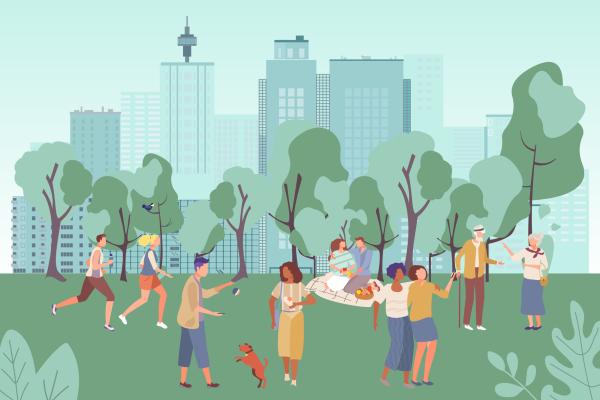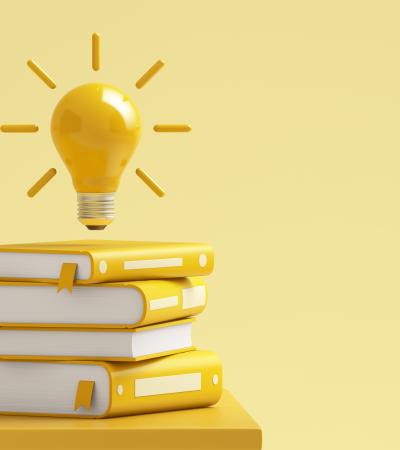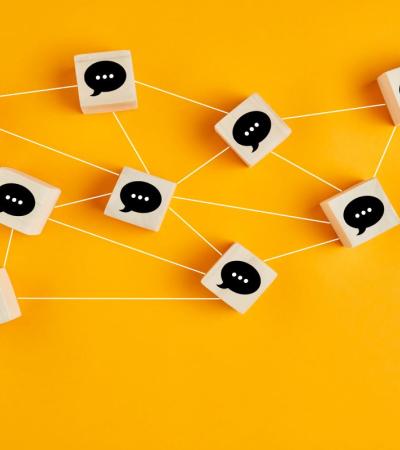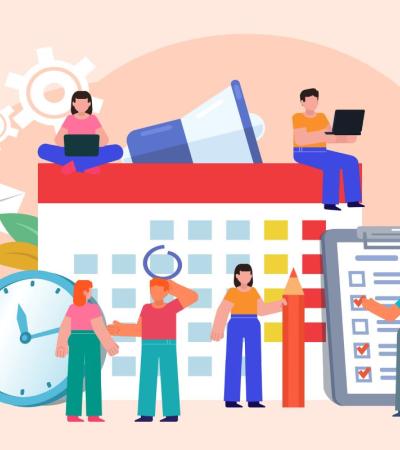The COVID-19 pandemic forced the world to face some unexpected truths. Many of us quickly realized, while quarantined in our living rooms-turned-workspaces, that all the technology in the world could not replace human connection. We missed our neighbors, classmates and colleagues — our sense of community.

Necessity is the mother of invention. With their doors closed to the public, libraries had to find new ways to reach diverse populations and develop meaningful connections during a time of disconnection. Libraries increased digital collections, shifted programs online, and developed curbside services. Staff became Zoom experts and figured out how to turn parking lots into Wi-Fi hotspots. We designed services with the ever-changing needs of our customers in mind.
How did we do it? It was library workers’ knowledge of their communities that enabled them to respond so effectively. Now, as libraries and their staff begin the slow and thoughtful work of reopening, knowledge of the community will be essential to address people’s evolving needs once again.
What do we mean by "knowledge of the community"?
ALA’s National Impact of Library Public Programs Assessment (NILPPA) defines “knowledge of the community ” as “working toward understanding the communities for which programs are developed, including their particular needs and interests; building respectful, reciprocal relationships with community members and organizations; and ensuring access to a wide variety of programs for all community members, especially those who have historically been underserved or face other challenges to access.”
What, specifically, does a library worker need to know how to do? Let’s drill deeper into this core competency of programming librarianship. The competencies and skills required for in-depth knowledge of the community in the virtual or hybrid world are very similar to those needed in the in-person world.
You need to know how to use data
A foundational competency is the ability to use community data: where to find it, how to interpret it, how it impacts planning and decision-making. It is important to communicate to stakeholders how that data impacts the development of the suite of programs the library is offering and the target audiences that may be identified and prioritized. Knowing how to monitor and evaluate community data is critical for programming success. Also, it is important to keep in mind that the pandemic has had demographic, economic and social impacts on communities; we must be aware of those impacts and take them into consideration in any current or future program planning.
You need to have an EDI mindset
All programming must be developed and delivered with a diversity/equity/inclusion lens. In order to provide impactful and meaningful programming, in-depth knowledge of the diverse populations in the community must be aligned with consideration of culturally relevant and authentic topics, issues and content. Partnerships with leaders or organizations representing diverse communities can provide insights and connections to inform library programming that may appeal to new and diverse audiences. The motivation and ability to build partnerships with organizations outside of the library is a key factor in determining deep community knowledge.
You need to know how to lead conversations
Effective facilitation is of critical importance in gaining community knowledge. The ability to organize engaging conversations with a variety of community members can result in awareness and community knowledge that was not easily understood without those conversations. Facilitation is a skill that can be learned, with practice building the confidence of the facilitator. ALA offers free and useful facilitation training information through its Libraries Transforming Communities initiative. Facilitation of virtual meetings is challenging as well. We have had many experiences with that in the past year and those best practices are still being codified but must be kept in mind when in the virtual of hybrid setting.
You need to know how to work around broadband deserts
Library staff may have well-honed virtual facilitation skills but if segments of the community do not have access to robust broadband connectivity, virtual engagement is not possible. Utilization of personal meetings, telephone calls, written communication and other more personal types of connections are critical to making authentic community connections in the many urban and rural neighborhoods that are broadband deserts.
You need to know how to listen
Although it may seem obvious, it is important to call out the ability to listen as a critical skill for building community knowledge. Particularly in communities where library staff may not have relevant cultural connections, listening carefully and without judgment to the thoughts, ideas, and concerns of community members representing diverse, under-represented, or under-resourced groups is the basis for establishing trusted relationships that can move the library and the community forward.
How can these skills be learned by or embedded in the skill set of librarians? Currently, many community engagement skills are developed on the job or through professional development training. It would be ideal to see them emphasized in the master’s curriculum.
Basic reference skills taught in master's programs should provide a foundation for community data analysis. Many master's programs are focusing on an EDI lens for all aspects of the curriculum. Facilitation skills are not being taught in any systematic manner, and those skills are critical to be included for authentic community engagement.
A focus on facilitation skills, possibly through a required course on community engagement or communication strategies, would be a huge step forward in educating and preparing librarians for truly understanding and knowing the communities they serve.
Susan Hildreth is Library Consultant in Walnut Creek, California and Tamara King is Community Relations Director at Richland Library in Richland County, South Carolina. Skills for 21st-Century Librarians: Task Force for the Development of a NILPPA-Informed Programming Librarian Curriculum was made possible in part by the Institute of Museum and Library Services grant number RE-246421-OLS-20.



